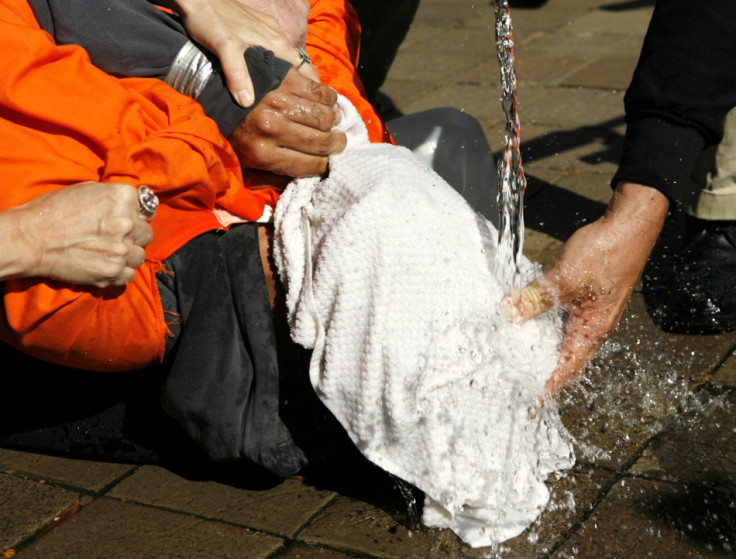US Senator Tom Cotton says waterboarding 'isn't torture'
The Senator for Arkansas disagreed with John McCain that use of the technique violates the Geneva Conventions.
Republican Senator Tom Cotton said in an interview on Wednesday (9 November) that waterboarding should not be considered torture. Echoing the sentiments of 2016 presidential election winner, Cotton also said necessary means should be used to extract information from suspected terrorists.
Speaking to CNN's Wolf Blitzer, Cotton said: "Waterboarding isn't torture. We do waterboarding on our own soldiers in the military."
When Blitzer reminded Cotton that Republican senator John McCain, who was tortured as a Prisoner of War while a member of US forces in Vietnam, says waterboarding is a violation of the Geneva Conventions, the senator stated that he disagreed.
He said: "Anything that American troops volunteer for, and radio DJs volunteer for, is not torture. If it has to be done to save American lives, that's a tough call."
The comments by the Arkansas Senator align with those previously made by winner of the 2016 presidential election, Donald Trump.
During his campaign, Trump defended the use of torture, stating that "torture works," while arguing that waterboarding was not tough enough to be an effective method.
McCain has long been an outspoken opponent of the use of certain interrogation techniques used by previous administrations. Speaking after Trump's comments in July, McCain said: "It's [torture] not the United States of America. It's not what we are all about. It's not what we are."

Waterboarding is a technique designed to simulate the effect of drowning, in which water is poured over a cloth covering the face.
The Geneva Convention against torture defines torture as: "Any act by which severe pain or suffering, whether physical or mental, is intentionally inflicted on a person for such purposes as obtaining from him or a third person information or a confession."
Cotton also said that torture should only be used in specific circumstances but agreed it was necessary in some instances.
"If experienced intelligence officials come to the President of the United States and say we think this terrorist has critical information and we need to obtain it and this is the only way we can obtain it - it's a tough call.
"But the presidency is a tough job. And if you're not ready to make those tough calls, you shouldn't seek the office. Donald Trump's a pretty tough guy, and he's ready to make those tough calls," he added.
© Copyright IBTimes 2025. All rights reserved.





















